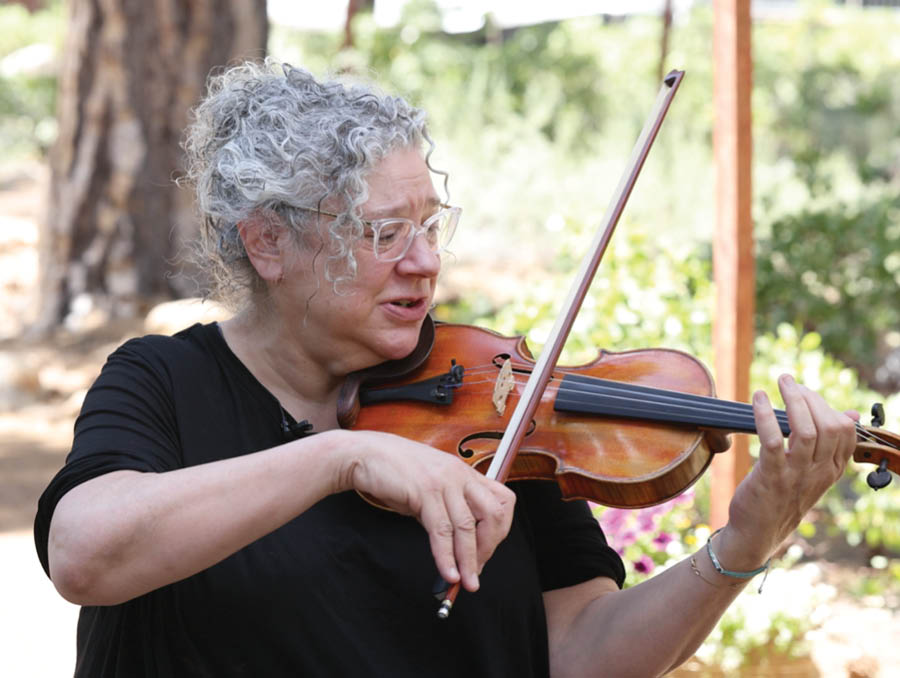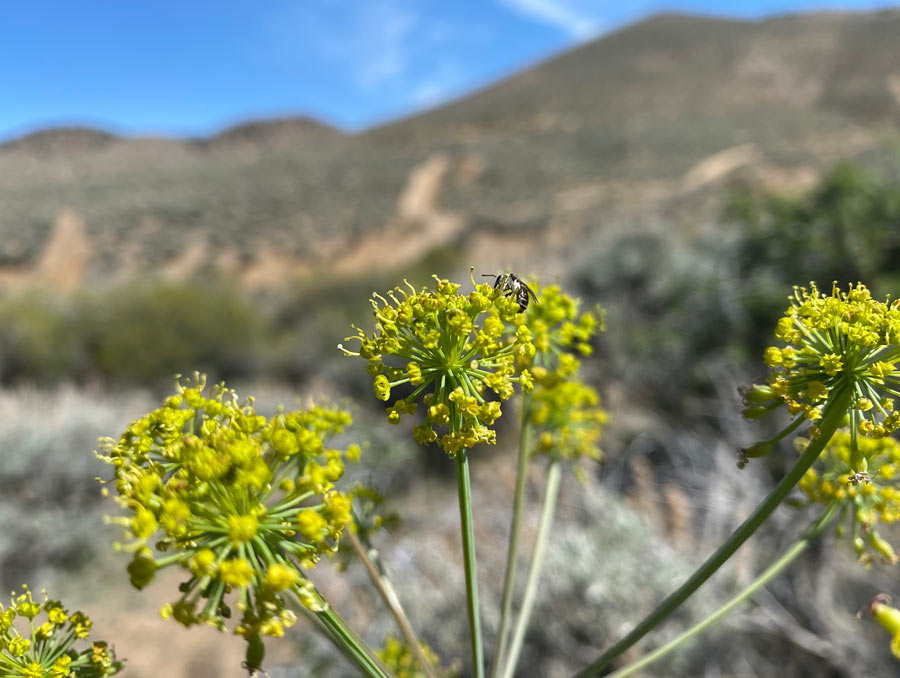Two University of Nevada Cooperative Extension educators have won the 2011 National Extension Diversity Award for their work on a curriculum that examines the historical, social and economic attributes of Indian reservations with a four-state region of the West.
Staci Emm and Loretta Singletary, authors of the eight-chapter "People of the Land" curriculum, were presented with the award Sunday (Nov. 13) at the annual meeting of the Association of Public and Land-grant Universities in San Francisco.
The award is given by the Extension Committee on Organization and Policy, which held a reception in honor of Emm, the Extension Educator for Mineral County, and Singletary, the Extension Educator for Lyon County and also the Area Director for UNCE's Central/Northeast Area.
"People of the Land" was previously the top winner in the National Association of County Agricultural Agents' Communications Awards Program, and won a gold medal from The Association of Natural Resource Extension Professionals.
The curriculum created by Emm and Singletary is designed to help agricultural and natural resource professionals work more effectively with American Indian farmers and ranchers in Idaho, Nevada, Oregon and Washington.
It is the result of a three-year quality-of-life assessment of American Indians and the U. S. Department of Agriculture professionals who work with them. Government officials said they have trouble helping Indian farmers and ranchers develop sustainable agriculture and natural resource management skills on reservation land. Meanwhile, tribal leaders expressed their desire to strengthen agriculture on Indian lands.
The Cooperative Extension study by Emm and Singletary identified a "knowledge gap" that indicated the need to improve understanding and appreciation of individual tribal histories and cultures in order to work more effectively with tribes. "People of the Land" provides the training to close that gap.
"American Indian farmers and ranchers help to economically support rural reservations," Emm said, "so its critical that federal programs are effective in increasing the profitability of farms and ranches. 'People of the Land' is an effort to help make that happen."
Singletary called American Indian land tenure issues "profoundly complex," and said the "People of the Land" curriculum increases the awareness and understanding of the obstacles Indian landowners face when managing their resources.
Cooperative Extension Dean and Director Karen Hinton praised Emm and Singletary for taking on a difficult job.
"'People of the Land shows how we try to bring real solutions to Nevadans to improve the economy and people's lives," she said.
Singletary and Emm have taught the curriculum to hundreds of tribal agriculture producers and land managers within the four-state region. Impact measures show that agency officials completing "People of the Land" increased knowledge of key reservation issues, including land tenure, fractionated lands, Indian governance and Indian irrigation projects. This will help them provide programs on tribal lands that are more culturally accepted and more appealing to Indian agricultural producers, increasing participation and erasing perceptions that the programs are inaccessible.
Demand for the 166-page textbook has been high. The book is already in its second printing, and Emm and Singletary - at the request of county officials and state educators - are working on two separate publications - one focused specifically on Nevada tribes and another written for Nevada students.
The two Extension Educators received approximately $349,000 in new grant funds in 2011 from USDA Office of Advocacy Outreach to expand the program to include additional reservations in Washington, Idaho and Oregon as well as North and South Dakota. To date, they have conducted needs assessments with American Indian producers on two of the 12 reservations targeted in this expanded program.
Emm and Singletary also received $70,051 in new grant funds from Western Sustainable Agriculture Research and Education, the agency which funded the original "People of the Land" proposal in 2005. This new grant award will fund expansion of People of the Land into the southwestern U.S., targeting the Navajo and Hopi Reservations.
For more information, contact:
Staci Emm, Extension Educator, (775) 945-3444, emms@unce.unr.edu
Loretta Singletary, Extension Educator, (775) 463-6541, singletaryl@unce.unr.edu











